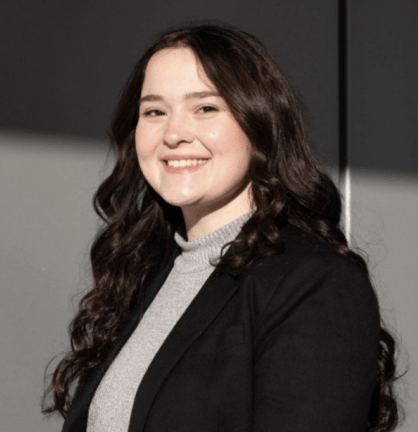
About Julia
As an early advocate for her own education, Julia Mellary has been interested since elementary school in both how students learn and how teachers teach. As a Biomedical science major in CBS, Julia expanded her educational horizons exploring the field of Discipline-Based Education Research (DBER). Working with Dr. Dan Grunspan, Julia has investigated a number of projects related to both Undergraduate Student learning and University teaching, centered through a lens of advocating to ensure navigation of the University education system is equitable. Now a Graduate Student studying DBER, Julia was recently awarded the Bill Wood Graduate Student Talk Award for best talk at the latest SABER (Society for the Advancement of Biology Education Research) conference, where she travelled on a COESP Travel Grant.
Julia’s research
Julia’s award winning research provides insight into:
- why current instructors teach the way they do, and
- how current instructional practices can be leveraged to train a future population of faculty who are inclined to teach in evidence-based ways.
While the common belief exists that faculty teach how they were taught, Julia’s research, conducted through thematic analysis of faculty interviews, finds that:
- faculty rarely copy behaviours from past educational experiences and/or past instructors, rather typically innovating and developing through trail and error, however,
- instructors do strive to replicate or create the feelings, and/or opposite feelings, they experienced in their classrooms as students, and thus form beliefs about practices, and justify the use of practices, based on those feelings.
In addition to the teaching perspective, Julia is looking to the undergraduate experience to investigate the relationship between influential learning experiences and the perceptions and feelings associated with those experiences. For example:
- students who prioritize real-life application of course content and obtaining job-skills tended to espouse beliefs associated with active learning strategies, whereas
- students who prioritized earning high grades were more inclined to hold beliefs aligned with didactic strategies, and importantly,
- students’ views on active learning appear to be fixed after initial impressions were formed from their first experiences with active learning.
Going Forward
Overall, Julia’s research aims to enhance instructional practices of faculty by encouraging future faculty to teach in evidence-based ways (Grunspan et al 2018). Julia’s research promotes an increased understanding of how past educational experiences manifest in how faculty teach and students learn, thus informing how current curricula can be designed to help transmit best practices to the next generation of undergraduate instructors. Julia provides a conduit for current Undergraduate students to advocate for, and University teachers to inform, the future of biology education.



